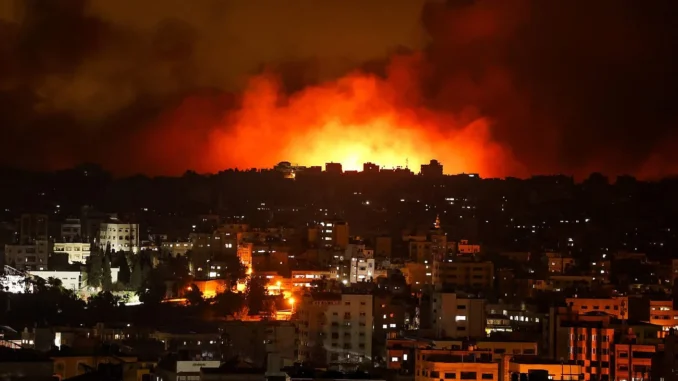
Israel365 News
October 10, 2023
On Monday, a surge of rocket attacks from the Gaza Strip caused injuries to five people in southern and central Israel. Among them, two individuals were seriously wounded in this exchange.
The Magen David Adom ambulance service responded promptly to the crisis, treating four individuals in Ashkelon who had been injured by rocket impacts. The casualties included a 75-year-old man in serious condition, two men aged 55 and 30 in moderate condition, and one person with minor injuries. Additionally, a woman in her 50s in Ashdod was seriously wounded due to a rocket impact.
Sirens warning of incoming rockets reverberated across various Israeli cities, including Jerusalem, Tel Aviv, Ra’anana, and even as far north as Baqa al-Gharbiyye. One rocket even exploded near the vicinity of Ben Gurion International Airport. This marked the first time in several days that these locations had experienced such alerts.
Amidst the rocket attacks, multiple explosions occurred, attributed either to rocket impacts or interceptions by the Iron Dome missile defense system. Fortunately, while one rocket fell in an open area near Ben Gurion Airport, the airport itself continued its operations without interruption.
The rocket barrages occurred a day after Israel officially declared a state of war in response to a massive attack by Hamas, a Palestinian militant group. Reports from Hebrew media indicated that the death toll had surpassed 800 and was expected to rise further. Concerns also loomed regarding the fate of over a hundred people who had been abducted and taken into the Gaza Strip, with their status remaining unclear.
In parallel with these events, Hamas and other militant groups in Gaza initiated an invasion, utilizing convoys of pickup trucks, motorbikes, speedboats, and motorized gliders. Simultaneously, they launched thousands of rockets at Israel, impacting homes in Tel Aviv and other areas.
The casualties from this conflict have been devastating, with the death toll reaching 800, including at least 73 soldiers, including high-ranking officers, and 37 police officers. Additionally, the number of wounded individuals continues to increase. The Health Ministry reported that as of Monday afternoon, 2,616 people have been treated at hospitals, with 25 of them in critical condition and hundreds more fighting for their lives.
The pervasive fear of potential militant activities throughout the country keeps much of Israel on edge.
The Israeli military’s top spokesman stated that Israeli troops have regained control of all towns on the Gaza border. Nevertheless, there are concerns that terrorists may still be present within Israeli territory. The Israel Defense Forces reported the killing of a Palestinian terrorist in Kibbutz Kfar Aza, near the Gaza Strip border.
Despite ongoing exchanges of fire, the situation was deemed to be more isolated than the intense battles that transpired during the previous days. The Israeli military has been taking measures to secure breaches in the Gaza border barrier with tanks supported by combat helicopters and drones.
The IDF has also initiated evacuations, with 15 out of 24 towns on the border already evacuated. However, Sderot has not been evacuated at this stage. Additionally, the IDF has experienced an unprecedented mobilization of reservists, with 300,000 reservists called up within 48 hours, marking the largest mobilization since the 1973 Yom Kippur War.
Despite ongoing airstrikes targeting Hamas and Palestinian Islamic Jihad facilities, the presence of over 100 Israeli hostages in Gaza complicates Israeli plans for a wide-scale counterassault.
Hamas claimed that Israel’s bombing in the Gaza Strip had resulted in the death of four Israeli hostages, further intensifying the gravity of the situation.
In the wake of the conflict, the United Nations reported that over 123,000 people have been displaced in the Gaza Strip. The destruction and damage have been extensive, with Israeli airstrikes destroying housing units and severely damaging others.
The situation remains fluid, with many questions surrounding the handling of the crisis, intelligence, deployment, and policy failures that allowed the conflict to escalate to such devastating proportions.
As the nation grapples with the aftermath, Prime Minister Benjamin Netanyahu, who announced a broad retaliatory campaign in Gaza, has largely remained silent since Saturday, sparking calls for answers and accountability regarding the crisis.
